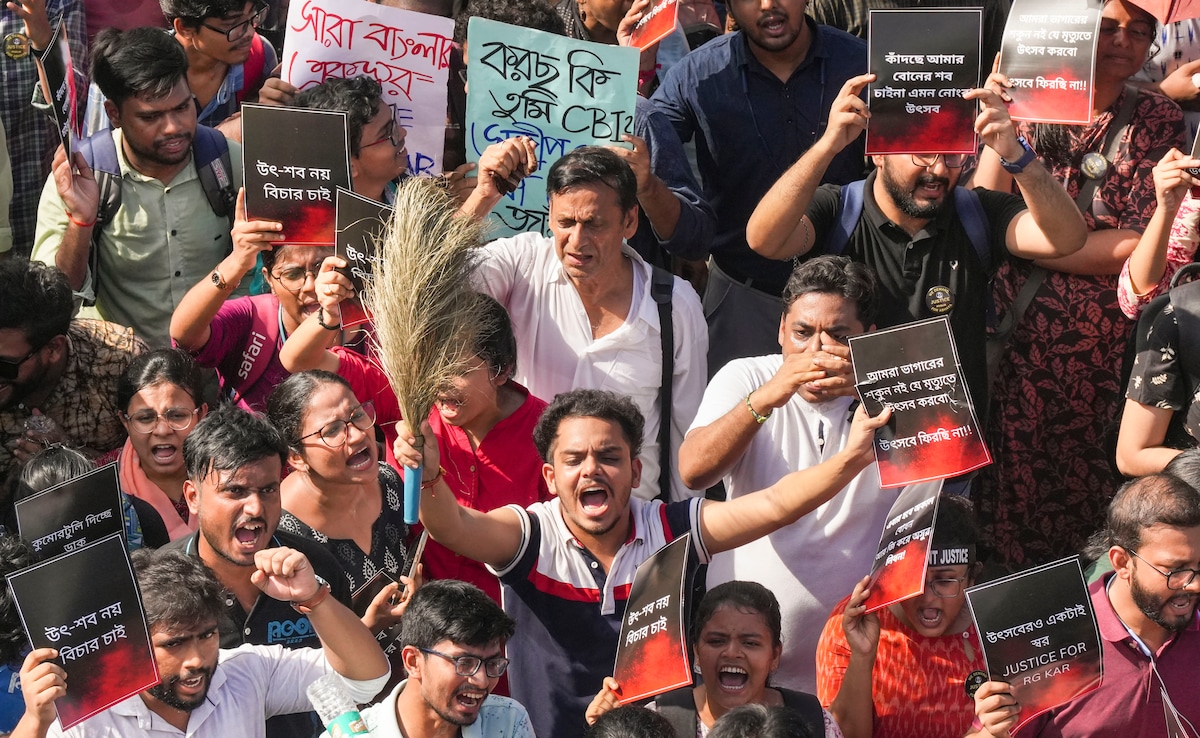Kolkata Court Convicts Sanjay Roy in Notorious Rape-Murder Case, Victim’s Family Demands Further Justice
In a landmark decision that has garnered significant media attention, a trial court in Kolkata has convicted Sanjay Roy, the prime suspect in the notorious RG Kar Medical College rape and murder case. The verdict, announced by the Sealdah court on Saturday, marks a crucial development in a case that shocked the community and reignited calls for stronger measures against gender-based violence. The victim, a young doctor on duty, tragically lost her life on August 9, 2024—a date that will remain etched in the memories of those who knew her and those who continue to fight for her justice.
The mother of the victim expressed a mixture of relief and deep sorrow following the verdict. “That Sanjay is guilty was proven through biological evidence,” she stated, highlighting the trial’s reliance on scientific assessment in reaching its decision. However, she conveyed a lingering sense of injustice, emphasizing that “he was not alone” in the crime, and that many others, presumably complicit, remain at large. The grieving mother reiterated her commitment to pursuing justice until all those responsible are apprehended and brought to trial.
The court’s decision came nearly two months after the in-camera trial began, following a lengthy investigation and months of anticipation. Anirban Das, the additional district and sessions judge, revealed that sentencing for Sanjay Roy will be announced on Monday, a moment that will undoubtedly be met with heightened emotions by the victim’s family and advocates alike. The verdict has stirred conversations about the safety of women in India and the urgent need for systemic change.
What Lies Ahead: The Legal Framework and the Fight for Justice
The legal proceedings have illuminated critical aspects of India’s judicial system, particularly concerning crimes of this nature. Sanjay Roy was found guilty under multiple sections of the Bharatiya Nyaya Sanhita, including provisions that govern rape and murder. Specifically, he was convicted under Sections 64, 66, and 103 (1)—the latter of which stipulates severe penalties that include death or life imprisonment. This framework reflects the judiciary’s intent to impose stringent measures on those who commit the gravest offenses against human life and dignity.
While the conviction marks a pivotal moment, it is essential to recognize that the family believes the fight is far from over. The victim’s mother spoke about her profound anguish, stating, “The case is not complete. It will only be completed after the others who were involved in killing our daughter are punished.” This sentiment echoes a growing demand for better policing and judicial accountability, particularly in cases involving sexual violence against women.
Despite the progress made in this case, the wider context of women’s safety remains a pressing issue. Statistics demonstrate that gender-based violence continues to plague India, with cases of rape and murder making headlines on a disturbingly regular basis. The victim’s family’s resolve serves as a reminder that justice should not only involve punitive measures but also systemic change to ensure the safety and dignity of women across the nation.
A Collective Call for Action: Community and Advocacy Groups Respond
The RG Kar Medical College rape-murder case has resonated with various community and advocacy groups, prompting a collective call for reform. After the announcement of the conviction, many organizations rallied around the victim’s family, emphasizing the need for better support systems for victims of domestic and sexual violence. Activist groups have highlighted the importance of comprehensive legal reforms designed to offer better protection for women, as well as more effective avenues for justice.
As social media plays an increasingly critical role in shaping public discourse, many individuals have taken to various platforms to express solidarity with the victim’s mother and to advocate for broader societal change. The online community has shared messages of support and organized campaigns to raise awareness about gender violence and the importance of justice for survivors.
The Road Ahead: Continuing the Fight for Justice
As the family awaits the sentencing of Sanjay Roy, they remain steadfast in their commitment to seek justice for their daughter. The harrowing journey they have endured serves as a testament to their resilience and unwavering determination. “We will wait for that day… Till that day, we will not be able to sleep,” the victim’s mother stated, emphasizing the weight of their loss and the urgency they feel to see justice served.
The case has not only affected the immediate family but has also sparked a broader dialogue about the pervasive issues of violence against women in India. Law enforcement agencies, policymakers, and social advocacy groups are now tasked with the pressing responsibility of ensuring that such tragedies are not repeated and that justice prevails for all victims of gender-based violence.
In light of these developments, it is crucial for society to actively engage in discussions about systemic change, community support, and the empowerment of women. “This is just the beginning,” said a member of a local women’s rights organization, urging the community not to forget the lessons learned from this tragic event.
In summary, the conviction of Sanjay Roy sends a strong message regarding accountability in cases of sexual violence, yet it also serves as a poignant reminder that the fight for justice is ongoing. The family’s struggle reflects a broader societal issue that demands attention, reform, and a commitment to creating a safer environment for women everywhere.


